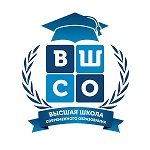ОТ КРИТИЧЕСКОГО МЫШЛЕНИЯ К КРИТИЧЕСКОМУ ДОВЕРИЮ: К ВОПРОСУ ОБ ОНЛАЙН-ОБУЧЕНИИ
Аннотация
Обоснование. С одной стороны, образование является особенной формой социального взаимодействия, для которой доверие между участниками является изначальным условием, а не результатом. С другой стороны, современная информационная среда, в которой возникают новые образовательные практики, изобилует непроверенной и ложной информацией, что затрудняет процесс установления доверительных отношений. Это создает парадоксальные установки: онлайн-образование одновременно требует и быстрого доверия, и эпистемической бдительности. Быстрое доверие и повышенная бдительность понимаются как два режима критического мышления, факторы переключения между которыми являются предметом данного исследования.
Цель — определить факторы, запускающие разные режимы критического мышления в процессе онлайн-обучения.
Материалы и методы. Теоретическая часть исследования опирается на синтез концепций эпистемического доверия, теорию быстрого доверия и социально-эпистемологический подход к критическому мышлению. На базе этого в статье представлено пилотное исследование методом опроса слушателей на платформе массовых открытых онлайн-курсов университета Лобачевского (N=83).
Результаты. Основной результат исследования заключается в том, что ключевым фактором переключения между быстрым доверием и повышенной эпистемической бдительностью является наличие или отсутствие предшествующего негативного опыта онлайн-обучения. Наличие такого опыта закрепляется и резко снижает ожидания от любых последующих практик онлайн-обучения. Отсутствие негативного опыта, наоборот, повышает быстрое доверие и снижает эпистемическую бдительность. В качестве механизмов переключения между режимами критического мышления в онлайн-образовании обозначены эпистемическое делегирование, апелляция к статистике, логико-грамматическая и визуальная репрезентация.
Скачивания
Литература
References
Verpatova O.Yu. Bloggers: critical thinking in new media. In: Pavlov I.I. (eds) Problemy upravleniya v sotsialno-gumanitarnyh, ekonomicheskih i tehnicheskih sistemah [Management problems in socio-humanitarian, economic and technical systems]: Eighth annual collection of scientific papers of teachers, graduate students, undergraduates, students of the Faculty of Management and Social Communications of TvGTU. In 2 vol. Vol. 2. Tver, 2020, pp. 21-26.
Chursinova O.V., Yaroshuk A.A. Critical thinking of students: basic techniques and tools of development. LBC 94.3, vol. 2, p. 289.
Anti-vaccination & vaccine hesitant narratives intensify in Australian Facebook Groups: Research Report. Reset Australia, 2021, 8 p.
Arslan S., Demirtas Z. Social emotional learning and critical thinking disposition. Studia Psychologica, 2016, vol. 58, no. 4, p. 276. http://dx.doi.org/10.21909/sp.2016.04.723
Dwyer N., Marsh S. Social network culture needs the lens of critical trust research. Trust Management IX: 9th IFIP WG 11.11 International Conference, IFIPTM 2015, Hamburg, Germany, May 26-28, 2015, Proceedings 9. Springer International Publishing, 2015, pp. 126-133. http://dx.doi.org/10.1007/978-3-319-18491-3_9
Fonagy P., Allison E. Beyond mentalizing: Epistemic trust and the transmission of culture. The Psychoanalytic Quarterly, 2023, vol. 92, no. 4, pp. 599-640. https://doi.org/10.1080/00332828.2023.2290023
Gweon H. Inferential social learning: Cognitive foundations of human social learning and teaching. Trends in cognitive sciences, 2021, vol. 25, no. 10, pp. 896-910. https://doi.org/10.1016/j.tics.2021.07.008
Hahn U., Lewandowsky S. What the pandemic showed us about reason and values. Philosophy, Expertise, and the Myth of Neutrality. 2024.
Hanna E. P. et al. A cognitive emotional methodology for critical thinking. Advances in Applied Sociology, 2013, vol. 3, no. 01, p. 20. http://dx.doi.org/10.4236/aasoci.2013.31003
Kleinig J. Trust and critical thinking. Trust and Schooling. Routledge. 2020, pp. 15-25. http://dx.doi.org/10.1080/00131857.2016.1144167
Koster E., de Regt H. W. Science and values in undergraduate education. Science & Education, 2020, vol. 29, no. 1, pp. 123-143. https://doi.org/10.1007/s11191-019-00093-7
Levy N. In trust we trust: Epistemic vigilance and responsibility. Social epistemology, 2022, vol. 36, no. 3, pp. 283-298. http://dx.doi.org/10.1080/02691728.2022.2042420
Lim L. Critical thinking, social education and the curriculum: foregrounding a social and relational epistemology. Curriculum Journal, 2015, vol. 26, no. 1, pp. 4-23. http://dx.doi.org/10.1080/09585176.2014.975733
Machete P., Turpin M. The use of critical thinking to identify fake news: A systematic literature review. Responsible Design, Implementation and Use of Information and Communication Technology: 19th IFIP WG 6.11 Conference on e-Business, e-Services, and e-Society, I3E 2020, Skukuza, South Africa, April 6–8, 2020, Proceedings, Part II. Springer International Publishing, 2020, pp. 235-246. http://dx.doi.org/10.1007/978-3-030-45002-1_20
Marabini A. Critical Thinking and Epistemic Value. Critical Thinking and Epistemic Injustice: An Essay in Epistemology of Education. Cham: Springer International Publishing, 2022, pp. 105-134. https://doi.org/10.1007/978-3-030-95714-8
Martinez-Berman, L., McCutcheon, L., Huynh, H. P. Is the worship of celebrities associated with resistance to vaccinations? Relationships between celebrity admiration, anti-vaccination attitudes, and beliefs in conspiracy. Psychology, health & medicine, 2021, vol. 26, no. 9, pp. 1063-1072 http://dx.doi.org/10.1080/13548506.2020.1778754
Milman N. B. Cultivating swift trust in virtual teams in online courses. Distance Learning, 2021, vol. 18, no. 2, pp. 45-47.
Ohlhorst J. Trust Responsibly: Non-Evidential Virtue Epistemology. Taylor & Francis. 2024, p. 160. https://doi.org/10.4324/9781003374466
Paliszkiewicz J., Skarzyńska E. The role of trust in online learning. Online learning Analytics. Auerbach Publications, 2021, pp. 197-211. http://dx.doi.org/10.1201/9781003194620-11
Pesch A. Trust Matters: Measuring Preschoolers' Epistemic and Interpersonal Trust in Teachers. PhD dissertation. University of Minnesota, 2020.
Pesch A., Koenig M. A. Trust matters: measuring and identifying a role for epistemic and interpersonal trust in preschoolers’ learning from teachers. Early Education and Development, 2023, vol. 34, no. 1, pp. 27-52. http://dx.doi.org/10.1080/10409289.2021.1991729
Pidgeon N., Poortinga W., Walls J. Scepticism, Reliance and Risk Managing Institutions: Towards a Conceptual Model of ‘Critical Trust'. Trust in Risk Management. Routledge, 2010, pp. 117-142.
Rapple L. Epistemic Trust in Online Higher Education: A Mixed Method Phenomenological Research Study. State University of New York at Albany, 2019.
Simion, M. Social Epistemology of Education. In: Peters, M. (eds) Encyclopedia of Educational Philosophy and Theory. Springer, 2020. Singapore. https://doi.org/10.1007/978-981-287-532-7_696-1
Stern M. J., Coleman K. J. Trust ecology and collaborative natural resource management. A new era for collaborative forest management. Routledge, 2019, pp. 45-58. http://dx.doi.org/10.4324/9781351033381-3
Walls J. et al. Critical trust: understanding lay perceptions of health and safety risk regulation. Health, risk & society, 2004, vol. 6, no. 2, pp. 133-150. https://doi.org/10.1080/1369857042000219788
West J. D., Bergstrom C. T. An Introduction to Calling Bullshit: Learning to Think Outside the Black Box. Numeracy, 2022, vol. 15, no. 1, article 1. https://doi.org/10.5038/1936-4660.15.1.1405
Список литературы
Верпатова О. Ю. Блогеры: критическое мышление в формате новых медиа // Проблемы управления в социально-гуманитарных, экономических и технических системах: Восьмой ежегодный сборник научных трудов преподавателей, аспирантов, магистрантов, студентов факультета управления и социальных коммуникаций ТвГТУ. В 2 ч. / Под общ. ред. И.И. Павлова. Часть 2. Тверь: Тверской государственный технический университет, 2020. С. 21-26.
Чурсинова О. В., Ярошук А. А. Критическое мышление обучающихся: основные техники и инструменты развития // LBC 94.3. T. 2. С. 289.
Anti-vaccination & vaccine hesitant narratives intensify in Australian Facebook Groups : Research Report. Reset Australia, 2021. 8 p.
Arslan S., Demirtas Z. Social emotional learning and critical thinking disposition // Studia Psychologica. 2016. Vol. 58, No. 4. P. 276. http://dx.doi.org/10.21909/sp.2016.04.723
Dwyer N., Marsh S. Social network culture needs the lens of critical trust research //Trust Management IX: 9th IFIP WG 11.11 International Conference, IFIPTM 2015, Hamburg, Germany, May 26-28, 2015, Proceedings 9. Springer International Publishing, 2015. P. 126-133. http://dx.doi.org/10.1007/978-3-319-18491-3_9
Fonagy P., Allison E. Beyond mentalizing: Epistemic trust and the transmission of culture // The Psychoanalytic Quarterly. 2023. Vol. 92, No. 4. P. 599-640. https://doi.org/10.1080/00332828.2023.2290023
Gweon H. Inferential social learning: Cognitive foundations of human social learning and teaching // Trends in cognitive sciences. 2021. Vol. 25, No. 10. P. 896-910. https://doi.org/10.1016/j.tics.2021.07.008
Hahn U., Lewandowsky S. What the pandemic showed us about reason and values //Philosophy, Expertise, and the Myth of Neutrality. 2024.
Hanna E. P. et al. A cognitive emotional methodology for critical thinking // Advances in Applied Sociology. 2013. Vol. 3, No. 01. P. 20. http://dx.doi.org/10.4236/aasoci.2013.31003
Kleinig J. Trust and critical thinking //Trust and Schooling. Routledge. 2020. P. 15-25. http://dx.doi.org/10.1080/00131857.2016.1144167
Koster E., de Regt H. W. Science and values in undergraduate education // Science & Education. 2020. Vol. 29, No. 1. P. 123-143. https://doi.org/10.1007/s11191-019-00093-7
Levy N. In trust we trust: Epistemic vigilance and responsibility // Social epistemology. 2022. Vol. 36, No. 3. P. 283-298. http://dx.doi.org/10.1080/02691728.2022.2042420
Lim L. Critical thinking, social education and the curriculum: foregrounding a social and relational epistemology // Curriculum Journal. 2015. Vol. 26. No. 1. P. 4-23. http://dx.doi.org/10.1080/09585176.2014.975733
Machete P., Turpin M. The use of critical thinking to identify fake news: A systematic literature review // Responsible Design, Implementation and Use of Information and Communication Technology: 19th IFIP WG 6.11 Conference on e-Business, e-Services, and e-Society, I3E 2020, Skukuza, South Africa, April 6–8, 2020, Proceedings, Part II. Springer International Publishing, 2020. P. 235-246. http://dx.doi.org/10.1007/978-3-030-45002-1_20
Marabini A. Critical Thinking and Epistemic Value //Critical Thinking and Epistemic Injustice: An Essay in Epistemology of Education. Cham : Springer International Publishing. 2022. P. 105-134. https://doi.org/10.1007/978-3-030-95714-8
Martinez-Berman, L., McCutcheon, L., Huynh, H. P. Is the worship of celebrities associated with resistance to vaccinations? Relationships between celebrity admiration, anti-vaccination attitudes, and beliefs in conspiracy // Psychology, health & medicine. 2021. Vol. 26, No. 9. P. 1063-1072 http://dx.doi.org/10.1080/13548506.2020.1778754
Milman N. B. Cultivating swift trust in virtual teams in online courses // Distance Learning. 2021. Vol. 18, No. 2. P. 45-47.
Ohlhorst J. Trust Responsibly: Non-Evidential Virtue Epistemology. Taylor & Francis. 2024. P. 160. https://doi.org/10.4324/9781003374466
Paliszkiewicz J., Skarzyńska E. The role of trust in online learning // Online learning Analytics. Auerbach Publicatio ns. 2021. P. 197-211. http://dx.doi.org/10.1201/9781003194620-11
Pesch A. Trust Matters: Measuring Preschoolers' Epistemic and Interpersonal Trust in Teachers. PhD dissertation. University of Minnesota. 2020.
Pesch A., Koenig M. A. Trust matters: measuring and identifying a role for epistemic and interpersonal trust in preschoolers’ learning from teachers // Early Education and Development. 2023. Vol. 34. No. 1. P. 27-52. http://dx.doi.org/10.1080/10409289.2021.1991729
Pidgeon N., Poortinga W., Walls J. Scepticism, Reliance and Risk Managing Institutions: Towards a Conceptual Model of ‘Critical Trust' // Trust in Risk Management. Routledge. 2010. P. 117-142.
Rapple L. Epistemic Trust in Online Higher Education: A Mixed Method Phenomenological Research Study. State University of New York at Albany. 2019.
Simion, M. Social Epistemology of Education. In: Peters, M. (eds) Encyclopedia of Educational Philosophy and Theory. Springer. 2020. Singapore. https://doi.org/10.1007/978-981-287-532-7_696-1
Stern M. J., Coleman K. J. Trust ecology and collaborative natural resource management // A new era for collaborative forest management. Routledge. 2019. P. 45-58. http://dx.doi.org/10.4324/9781351033381-3
Walls J. et al. Critical trust: understanding lay perceptions of health and safety risk regulation // Health, risk & society. 2004. Vol. 6. No. 2. P. 133-150. https://doi.org/10.1080/1369857042000219788
West J. D., Bergstrom C. T. An Introduction to Calling Bullshit: Learning to Think Outside the Black Box // Numeracy. 2022. Vol. 15. No. 1. Article 1. https://doi.org/10.5038/1936-4660.15.1.1405
Просмотров аннотации: 34 Загрузок PDF: 6
Copyright (c) 2024 Anastasiia V. Golubinskaya, Valeriia V. Viakhireva

Это произведение доступно по лицензии Creative Commons «Attribution-NonCommercial-NoDerivatives» («Атрибуция — Некоммерческое использование — Без производных произведений») 4.0 Всемирная.































